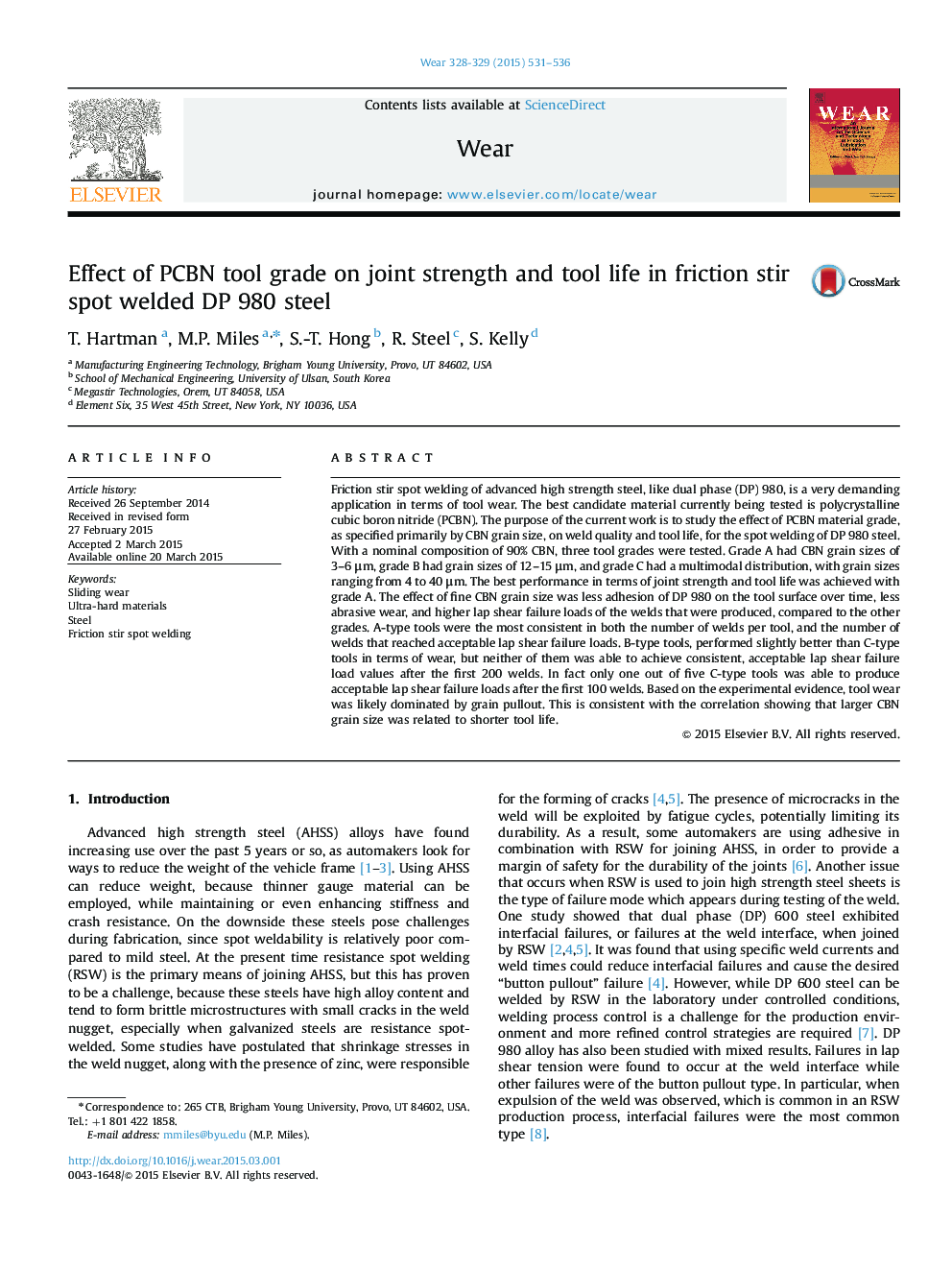| Article ID | Journal | Published Year | Pages | File Type |
|---|---|---|---|---|
| 7004441 | Wear | 2015 | 6 Pages |
Abstract
Friction stir spot welding of advanced high strength steel, like dual phase (DP) 980, is a very demanding application in terms of tool wear. The best candidate material currently being tested is polycrystalline cubic boron nitride (PCBN). The purpose of the current work is to study the effect of PCBN material grade, as specified primarily by CBN grain size, on weld quality and tool life, for the spot welding of DP 980 steel. With a nominal composition of 90% CBN, three tool grades were tested. Grade A had CBN grain sizes of 3-6 μm, grade B had grain sizes of 12-15 μm, and grade C had a multimodal distribution, with grain sizes ranging from 4 to 40 μm. The best performance in terms of joint strength and tool life was achieved with grade A. The effect of fine CBN grain size was less adhesion of DP 980 on the tool surface over time, less abrasive wear, and higher lap shear failure loads of the welds that were produced, compared to the other grades. A-type tools were the most consistent in both the number of welds per tool, and the number of welds that reached acceptable lap shear failure loads. B-type tools, performed slightly better than C-type tools in terms of wear, but neither of them was able to achieve consistent, acceptable lap shear failure load values after the first 200 welds. In fact only one out of five C-type tools was able to produce acceptable lap shear failure loads after the first 100 welds. Based on the experimental evidence, tool wear was likely dominated by grain pullout. This is consistent with the correlation showing that larger CBN grain size was related to shorter tool life.
Related Topics
Physical Sciences and Engineering
Chemical Engineering
Colloid and Surface Chemistry
Authors
T. Hartman, M.P. Miles, S.-T. Hong, R. Steel, S. Kelly,
